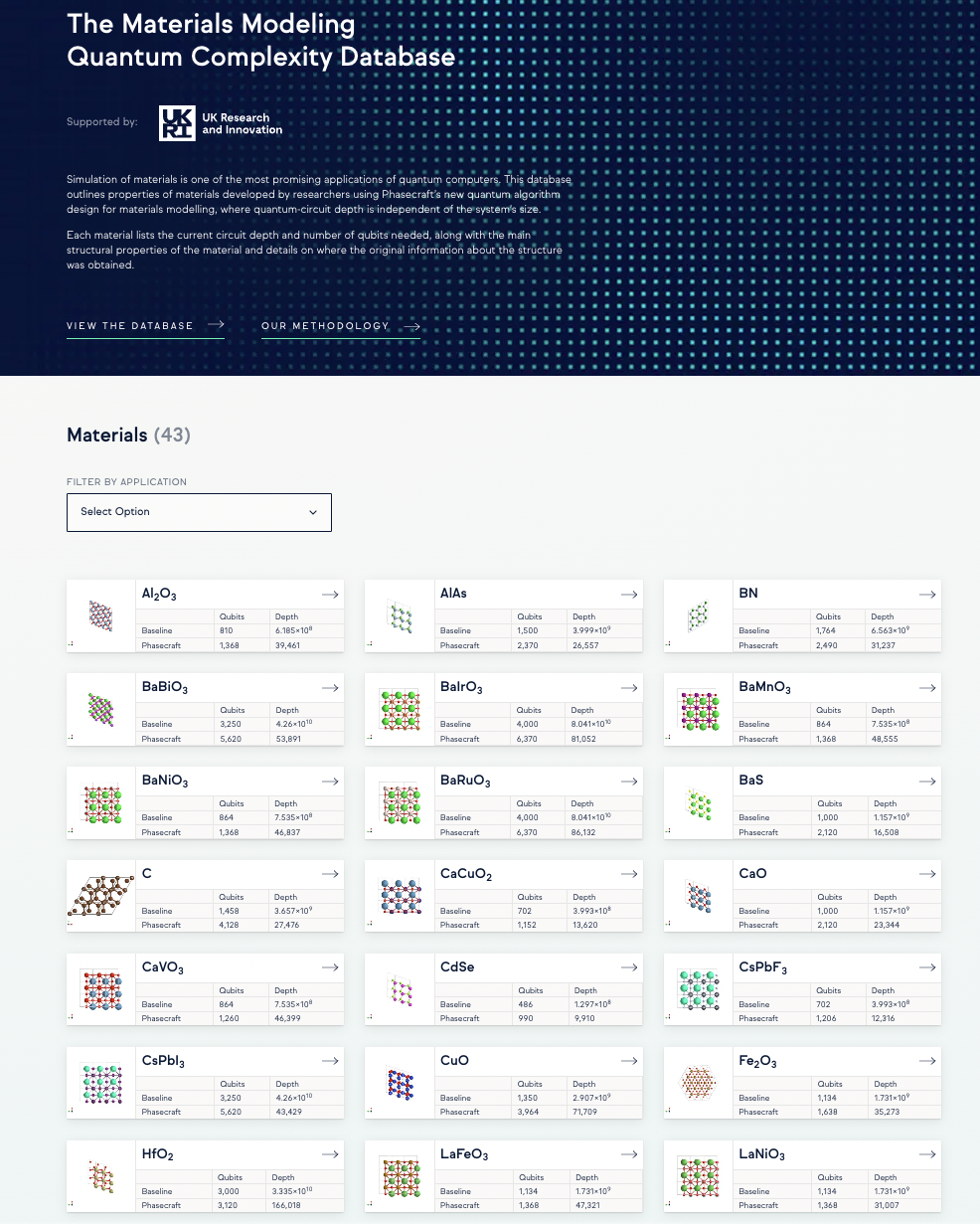Phasecraft, a startup led by top academics, has developed a suite of algorithms that simplifies and optimizes the simulation of materials on quantum computers. This advancement, published in Nature Communications, could lead to advances in renewable energy, manufacturing, and pharmaceuticals. Phasecraft’s approach combines classical methods of mapping materials with quantum techniques for simulating their behavior. This drastically reduces the number of quantum gates needed for simulations. The company’s breakthrough could accelerate advancements in efficient batteries, photovoltaics, supercapacitors, fuel cells, and drug development. Phasecraft’s work was part-funded by Innovate UK and National Quantum Computing Centre grants.
Phasecraft’s Quantum Computing Breakthrough
Phasecraft, a startup led by renowned academics, has developed a suite of algorithms that significantly simplifies and enhances the efficiency of simulating materials on quantum computers. This development, published in Nature Communications, could lead to advancements in various sectors, including renewable energy, manufacturing, and pharmaceuticals.
Understanding the behavior of materials is a promising application of quantum computers, with potential applications ranging from new battery cathodes to next-generation solar cells. However, near-term quantum computers have been limited in their ability to carry out complex simulations due to the limited number of operations they can reliably perform and a limited number of qubits.
Phasecraft’s Proprietary Approach
Phasecraft’s proprietary approach overcomes these limitations by combining classical methods of mapping materials with novel quantum techniques for simulating their behavior. The first stage involves calculations and optimizations on classical computers to produce an effective representation of the material. The second stage produces the world’s most efficient quantum circuits to simulate that material’s behavior. This entire framework is encapsulated in an integrated software pipeline that goes from the description of a material to a quantum circuit to simulate that material.
This approach drastically reduces the number of quantum gates needed to run the simulations, by a factor of more than a million in some cases. For instance, Phasecraft’s approach was able to show that lithium copper oxide, a material used in advanced lithium-ion battery technology, could be simulated with 410,000 quantum gates, compared to the previous baseline technique that used 1.5 trillion.
Real-World Impact
This advancement, partly funded through Innovate UK and National Quantum Computing Centre (NQCC) grants and carried out in collaboration with the Scientific Computing Department at the Science and Technology Facilities Council (STFC), is a significant step towards running complex materials simulations on near-term quantum computers. It also represents further progress in Phasecraft’s mission to close the gap between quantum promise and the real-world applications of the technology.
Phasecraft’s breakthrough could accelerate advancements in the development of more efficient batteries, photovoltaics, supercapacitors, and fuel cells, which are crucial for the advancement of renewable energy technologies. Additionally, more accurate simulations using quantum computers could lead to a better understanding of how drugs interact at the molecular level, speeding up the development of new medications and reducing the cost and time to market.
Modeling Database
To coincide with the publication of its latest paper, Phasecraft has launched its Materials Modeling Quantum Complexity Database. This database reveals the quantum circuit complexity for more than 40 materials identified as having potential for practical applications. Each material lists the current circuit depth and number of qubits needed, along with the main structural properties of the material. Researchers can filter the materials database by their application, from batteries to construction, nuclear energy, electronics, and more.
Phasecraft’s Vision
Toby Cubitt, co-founder and CTO/Chief Science Officer at Phasecraft, and Ashley Montanaro, co-founder and CEO at Phasecraft, both expressed their excitement about the advancements made in circuit depths with their latest algorithms. They believe that these improvements fundamentally shift the landscape and timeline of materials simulation on quantum computers, bringing the promise of modeling and designing novel materials using quantum computing closer to reality.
Collaborations and Support
Phasecraft’s work was carried out in collaboration with the Scientific Computing Department of the Science and Technology Facilities Council UKRl. Gilberto Teobaldi, Theoretical and Computational Physics Group Leader at the Scientific Computing Department expressed delight at the collaboration and hailed the research as a significant stride in the application of quantum computing to materials science.
Michael Cuthbert, Director of the National Quantum Computing Centre, also praised Phasecraft’s work in materials modeling, stating that innovative companies like Phasecraft are part of their mission to make the UK a world leader in quantum computing.
About Phasecraft
Phasecraft is a quantum algorithms company founded in 2019 by Toby Cubitt, Ashley Montanaro, and John Morton, world-leading quantum scientists from UCL and the University of Bristol. The company’s mission is to accelerate the practical application of quantum computing by redesigning quantum algorithms for the imperfect quantum computers of today. Phasecraft works in partnership with leading quantum hardware companies, including Google, IBM, and Rigetti, as well as academic and industry leaders, to develop high-efficiency algorithms to move quantum computing from experimental demonstrations to useful applications.

